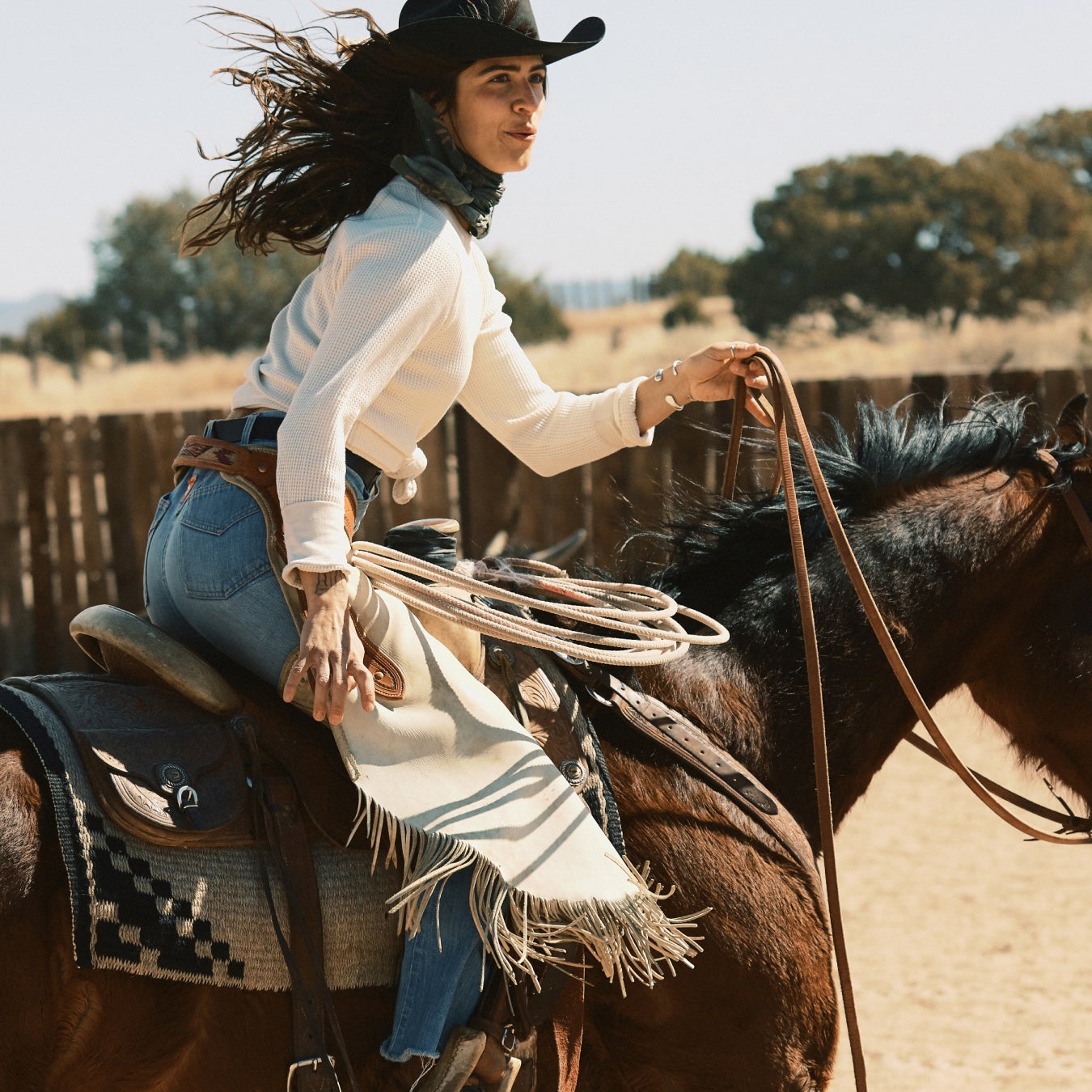From the dusty back routes and lonely trails to the deep canyons and quirky roadside attractions, there’s a lot to love about the American Southwest. (It’s one of the reasons ���ϳԹ��� is headquartered in Santa Fe, New Mexico.) The other great thing about it: the region’s wide-open spaces and rich history attract people with a deep reverence for the land. The kind of people, like the seven below, who embody what makes the Southwest unique and great.
Bianca Shannon: Wrangler and Designer
When Bianca Shannon was living in New York City and yearning for a simpler, more holistic life, she knew it had to be centered on horses. The lifelong rider found what she was looking for with , a Santa Fe, New Mexico, nonprofit that helps post-9/11 veterans recuperate and reintegrate into their communities. “I love working with the veterans and teaching them skills,” says Shannon, whose father is a veteran. “It takes a lot of focus and patience. Horses are so perceptive, picking up on whatever you give them.”
Working alongside ranchers and fellow wranglers, Shannon was inspired by the “wild rags”—scarves that protect against sun, wind, and dust—that are part of the traditional cowgirl or cowboy uniform. She also saw an opportunity and started (named after her horse, whom she rescued three years ago), which makes silk wild rags in colors like adobe, indigo, sand, clay, and other hues of the Southwest. Read more about Bianca on the .
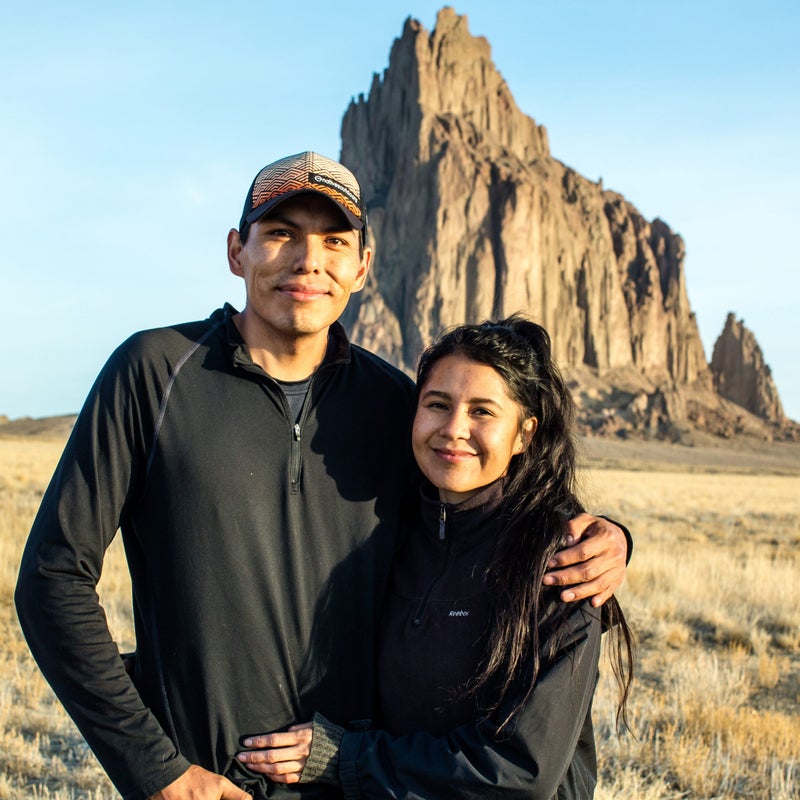
Vernan Kee and Chantal Wadsworth: Navajo Outdoorists and Educators
The Southwest had always been home to Kee and Wadsworth, who both grew up on the Navajo Nation. After Kee served in the Marines, and the couple started a new life together in San Diego, they found themselves pining to reconnect with their homeland and some of the traditions they had left behind. So a few years ago they sold their belongings, moved into a van full-time, and have been traveling around the Navajo Nation ever since.
Kee, a graphic designer, does a lot of work for , which aims to empower indigenous communities through its products and storytelling. And together they curate , an Instagram feed whose mission is to educate people about the sacred lands they traverse. “I’m getting back into these traditions that I’ve forgotten,” says Kee, who spoke exclusively Navajo until he was in third grade. When he left the Navajo Nation he ended up leaving behind not only the language but traditions like running east toward the sun at dawn. “Me being a Native American, I need these things, these stories, and these traditions in my life,” he says. “I’m now focused on learning more, and Chantal and I are re-learning our language.” These days, the pair rarely misses a sunrise or sunset.
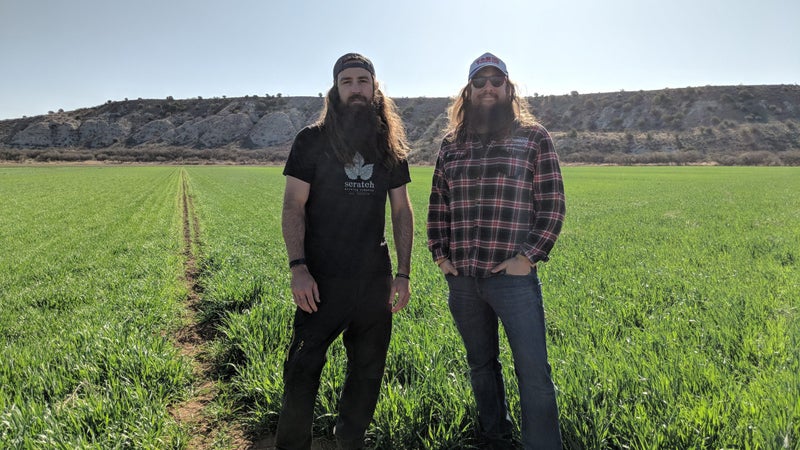
Jonathan Buford and Patrick Ware: Craft Brewers and Conservationists
When Jonathan Buford envisioned the craft brewery he aimed to create, the Ohio native knew he wanted to capture the wilderness areas of Arizona so people could experience the terroir of the state as they sipped his beer. After years of exploration, Buford and his business partner, Patrick Ware, created , a Gilbert, Arizona, farm-to-table brewery intimately tied to the land and local farmers. Local pecans go into their Pecan Pie Brown, spruce tips from 9,000 feet go into their Pine Mountain Sour, and Sonoran White Wheat—an heirloom grain––goes into all of their saisons.
The duo has also worked with the on a program to incentivize local farmers to grow barley instead of more water-intensive crops like cotton and alfalfa. Doing so has helped protect the Verde River, which is home to native fish and other wildlife and a prime destination for paddling and fishing. “It’s the most earth-friendly, ecology-changing project we do,” says Buford, an avid backpacker who is also working on a photography book documenting the state’s 90 wilderness areas. “It’s added 110 million gallons back into the river and completely changed its personality.”
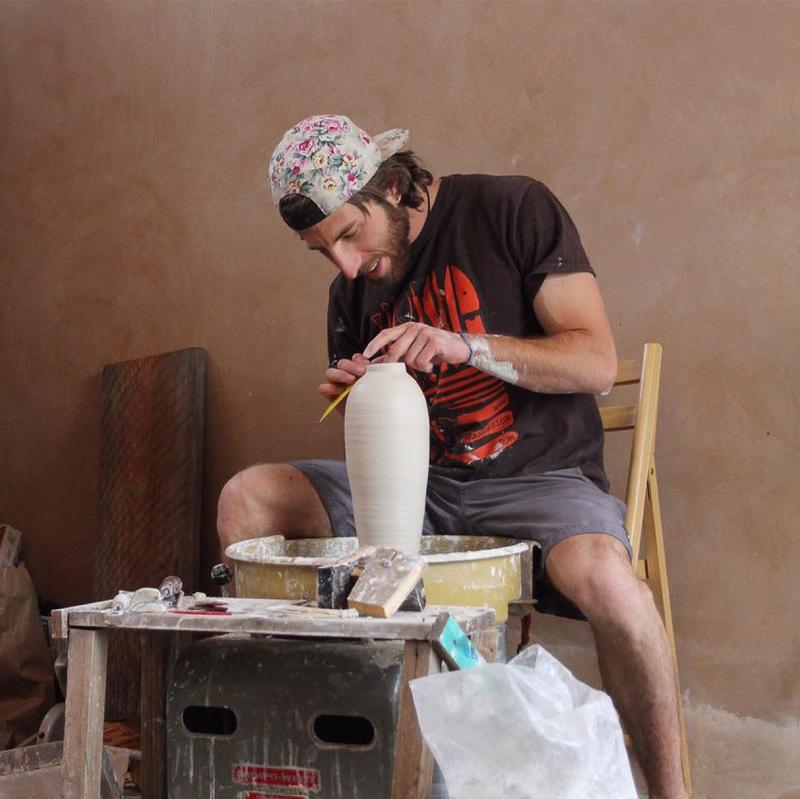
Avi Farber: Wildland Firefighter, Artist, and Photographer
For , fighting wildfires, working as a documentary photographer, and are all tied to the land. “People have been digging clay and firing it with wood to make vessels for thousands of years,” says Farber, who is based in Taos, New Mexico, and whose mother was also a potter. “You see the red rock of Abiquiu and the high alpine of Taos while you’re driving around collecting materials. And all that gets stored in your head and then translated into the work.”
While working on the fire line, Farber and the rest of the crew will try to guide a fire as it moves through a landscape, just as he spends days guiding the fire in his kiln. Or he’ll take a photograph of a charred cactus and months later the visual it will end up influencing one of his ceramic cups. “People who drink out of that cup you make,” he says, “can then connect to the place in that way.”
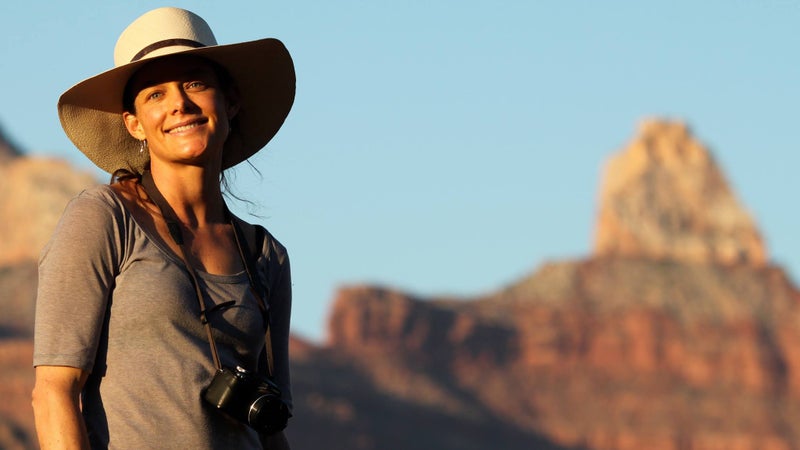
Amy Martin: Photographer, Biologist, and River Guide
was first introduced to the Grand Canyon in utero, when her mother hiked down to the bottom. She’s been coming back ever since. “I feel like that experience set the stage for my eventual deep connection with the place,” says Martin, who recently had a child of her own. “I hope I can instill the same reverence in my own daughter.”
Martin, who’s based in Flagstaff, Arizona, has spent most of her life getting to know the world between the canyon walls intimately. She guides raft trips on the Colorado River, does biological fieldwork to protect the endangered humpback chub, and also works as a . Martin recently shot a protest against uranium mining at Red Butte, a site sacred to the Havasupai (and other tribes), who have been using the Canyon for millennia. “There’s no better teacher on earth than the Grand Canyon for the craft of photography. The light changes every minute,” she says. “It’s never the same canyon twice.”
Since the 1897 Klondike Gold Rush, Seattle-based has outfitted men and women with rugged and dependable clothing and gear for work and adventure. From the icy Klondike to high-plains deserts – when conditions demand the best, Filson delivers with Unfailing Goods™ –guaranteed. Check out more stories from the SW and beyond on the

